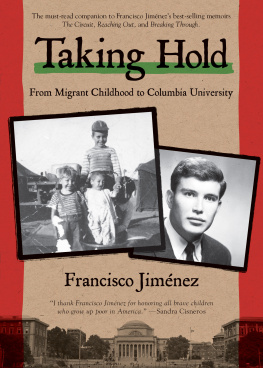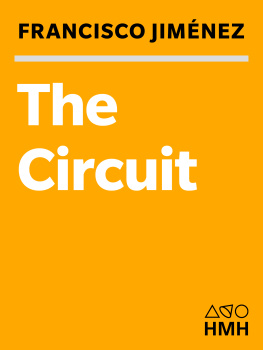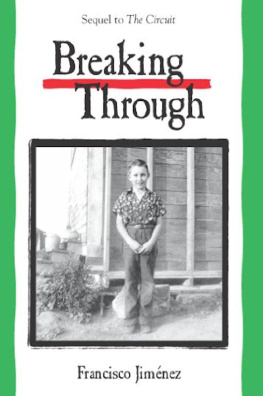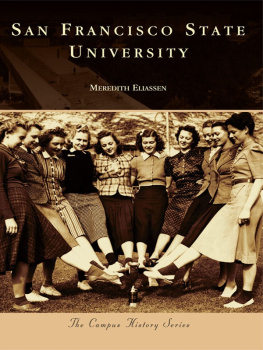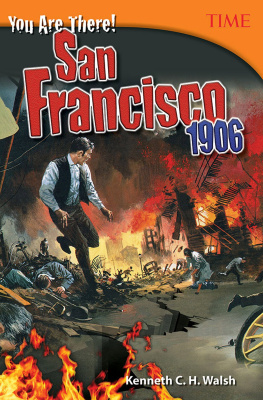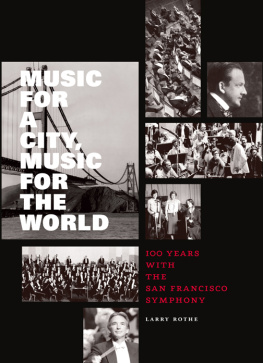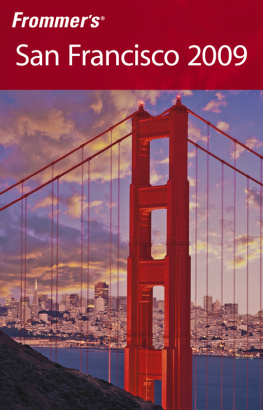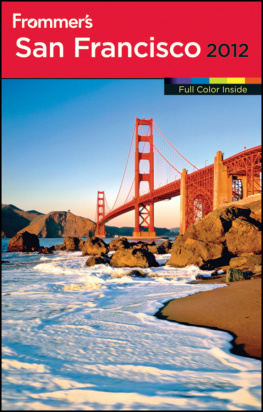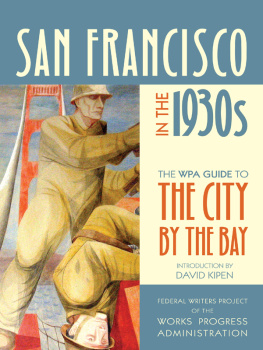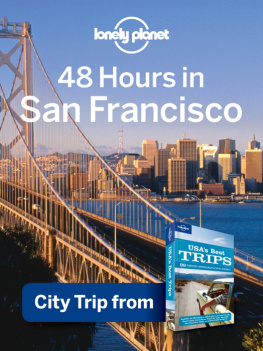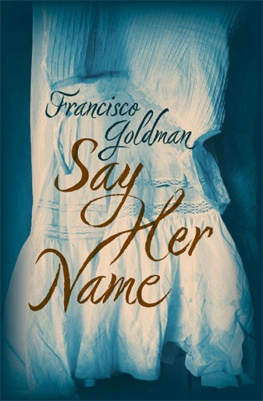All rights reserved. For information about permission to reproduce selections from this book, write to or to Permissions, Houghton Mifflin Harcourt Publishing Company, 3 Park Avenue, 19th Floor, New York, New York 10016.
Cover photographs: family photos Francisco Jimnez; photo of Columbia Barry Winiker/Getty Images
Jimnez, Francisco, 1943, author.
Taking hold / by Francisco Jimnez.
p.cm.
Sequel to: The circuit, Reaching out, and Breaking through.
1. CaliforniaSocial life and customsFiction. 2. Migrant agricultural laborersFiction. 3. Mexican American familiesFiction. 4. Mexican AmericansFiction.
I. Title.
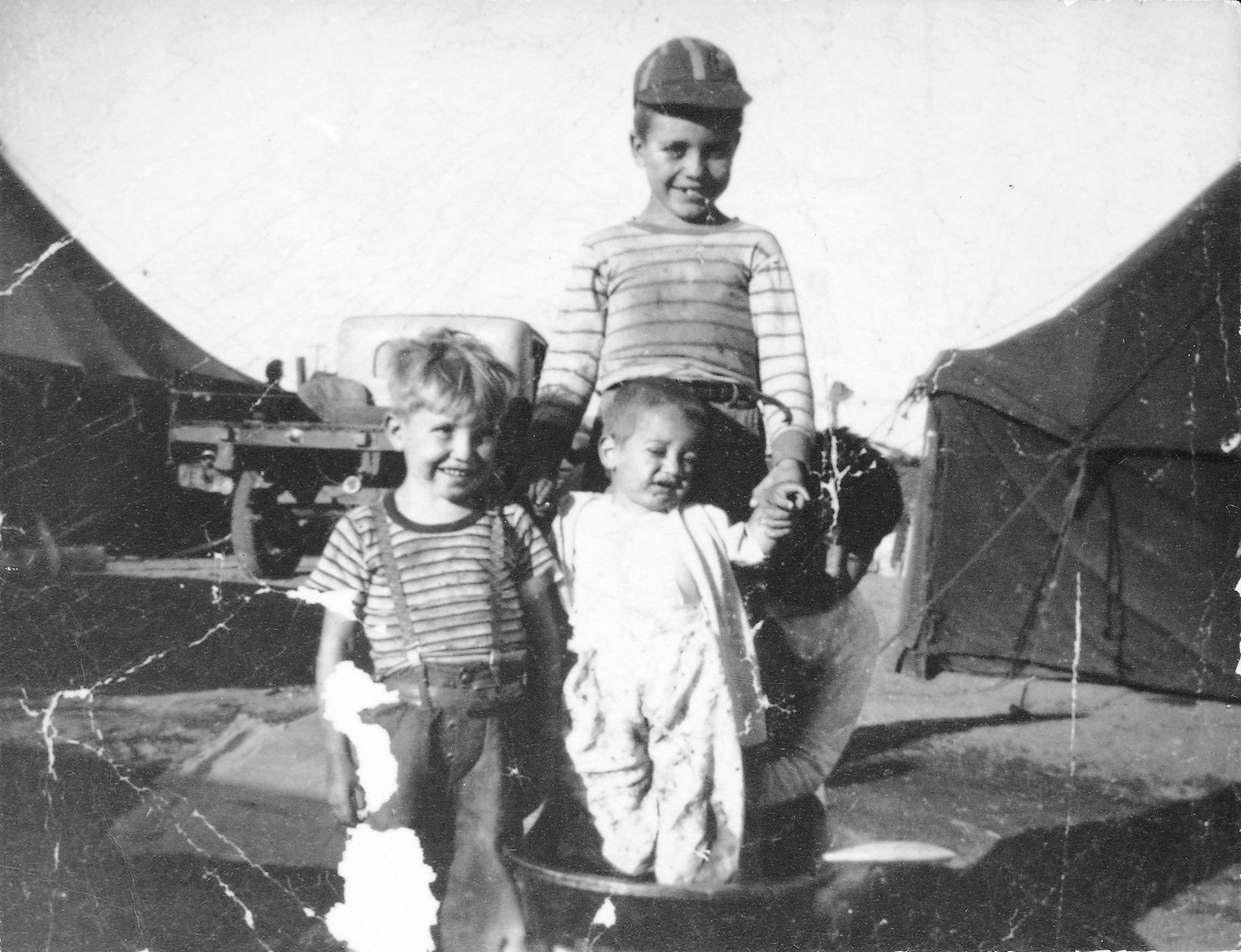
Francisco, Roberto, and Trampita in Tent City, Santa Maria, CA.
Acknowledgments
I am indebted to Roberto, my brother; Darlene, my sister-in-law; and my wife, Laura, for providing me with their personal recollections of the period I write about in this book and for giving me valuable editorial advice. A special thanks to other members of my immediate familyFrancisco Pancho, Lori, Miguel, Susie, Toms, Nova, Carlo, Dario, Camille, Orlando, and Marcelfor their patience and support during the preparation of this book.
Thanks to the many teachers and students who have enjoyed reading my work and have written to ask that I continue writing more stories about my family.
I am grateful to my friends and colleagues who have also encouraged me to writeAtom Yee, Alma Graca, Juan Velasco, Jill Pellettieri, Victor Vari, Elsa Li, and Lori Wood.
I am thankful to the staff at Columbia University archives for giving me access to historical materials; to the Creative Work Fund for giving me the opportunity to collaborate with the National Steinbeck Center; and to Santa Clara University for giving me the time to write and for valuing my work.
Lasting gratitude to my wonderful editor, Ann Rider, who gently prodded me to write this book and made valuable suggestions for improving it.
T HE JOURNEY OF OUR LIVES IS NOT JUST ABOUT THE DESTINATIONS WE HAVE REACHED. O UR WISDOM, EDUCATION AND PERSONAL GROWTH COME FROM THE PEOPLE WE MEET, THE PATHS WE CHOOSE TO FOLLOW AND THE LESSONS WE HAVE LEARNED ALONG THE WAY .
D OLORES H UERTA
Inside the Gates
I n the late afternoon of September 12, I boarded a TWA 747 in San Francisco. I was headed for graduate school at Columbia University in New York City. Although I felt grateful for having been awarded a fellowship that allowed me to continue my education at Columbia, I did not know what to expect. And leaving my family and Laura, my girlfriend, was extremely painfulI would not see them again for a very long time.
As I waited for the plane to take off, I thought about how different this journey was from the one my family and I took when we left our home in El Rancho Blanco, a small village in rural Mexico, nineteen years earlier. I was four years old at the time. We took a sluggish second-class train that had hard wooden seats from Guadalajara to Mexicali and crossed the U.S.-Mexican border illegally by foot. Although we did not know where we would end up and were fearful of being caught by the migra, Border Patrol, my family was hopeful that we would escape our poverty and begin a new and better life.
The plane to New York finally landed at JFK Airport after a six-hour flight. It was one a.m. The opaque yellow lights in the cabin of the crowded plane went on, waking the weary passengers, who scrambled to pick up their belongings. I glanced out the narrow oval window. Blinking red lights on the tip of the wings pierced the darkness. I unbuckled my seat belt and pulled from the bin above my small brown suitcase and portable typewriter enclosed in a blue case, which my older brother, Roberto, and his wife, Darlene, had given me as a college graduation gift. All during college I had borrowed my roommates typewriters because I could not afford my own.
I got off the plane, followed the signs to ground transportation, exited the terminal, and waited on the curb for a taxi. The stagnant air was hot, humid, and foul-smelling, like gasoline and burning rubber. A beat-up yellow cab pulled over.
Where to? the driver shouted through the front window. Before I had a chance to respond, he hollered again, Come on, man, where to?
Columbia University, I said.
Hop in, he yelled.
I quickly opened the back door, tossed my baggage on the seat, shut it, and opened the passenger door. Arent ya sitting in the back? he asked.
I prefer to sit in the front, I said. He rolled his eyes and grudgingly removed a pile of scattered papers and a clipboard from the passenger seat and tossed them on the dashboard. Thank you, I said, sliding into the seat and shutting the door.
Leaning slightly forward and gripping the steering wheel with both hands, he raced out of the airport onto the freeway. I grabbed the edge of the seat and pushed both feet against the floorboard as he zigzagged past cars and trucks and went under connecting freeways that crisscrossed like concrete pretzels. We zoomed by smoke-covered industrial brick buildings with dimly lit narrow windows. On the horizon appeared clusters of grayish skyscrapers radiating startling lights. To avoid the increasingly congested traffic, the cabdriver veered off the freeway onto one-way roads that led to bumpy streets and eventually to a long, wide avenue. On both sides of it were endless massive and haggard buildings and rundown stores, entrances and display windows shielded by steel shutters that made them look like jail cells. Are we almost there? I asked, breaking the long silence.
He slowed down, lowered his window slightly, spit out of it, nodded, and said, Were on Broadway and One Hundred Tenth; six more blocks. At 116th Street, he pulled over and stopped in front of a tall, wide black iron gate. Here you are, he said. This is the main entrance to Columbia.
Where is Hartley Hall? I asked. Hartley Hall was the building where I was to pick up the key to my room in John Jay Hall.
Its at the other end of this street, he said. Cant drive in. One hundred sixteenth is closed to traffic. We climbed out of the car. He opened the back door and reached in to get my luggage.
Ive got it, thanks. I said. He moved to the side, gave me a puzzled look, and told me the cab fare was twenty dollars. The high cost shocked me. I bit my lip, unloaded my belongings, handed him two ten-dollar bills, and thanked him.
Good luck, he said, folding the bills in half and placing them in his shirt pocket. He got back in the car and sped off. I stood alone, glancing up at the gate. Then I picked up my typewriter case and suitcase and began walking past the gate, along a wide dark red-brick path. Suddenly an immense courtyard framed on both sides by massive buildings with Greek columns exploded into view. I stood there for a moment, marveling at their colossal size, feeling as though I were entering another world.
Almost at the end of the long walkway was a large quad with an L-shaped annex of buildings. I went down a few steps that led to a smaller quad, where a statue of Alexander Hamilton sat facing Hamilton Hall. Adjacent to Hamilton Hall was Hartley Hall. When I stepped inside, the air-conditioned lobby felt unexpectedly cool, like a church. The attendant was asleep, his bald head rolling against the back of a chair behind a desk. I feigned a cough, hoping to wake him up. It worked. He sat up, startled.

